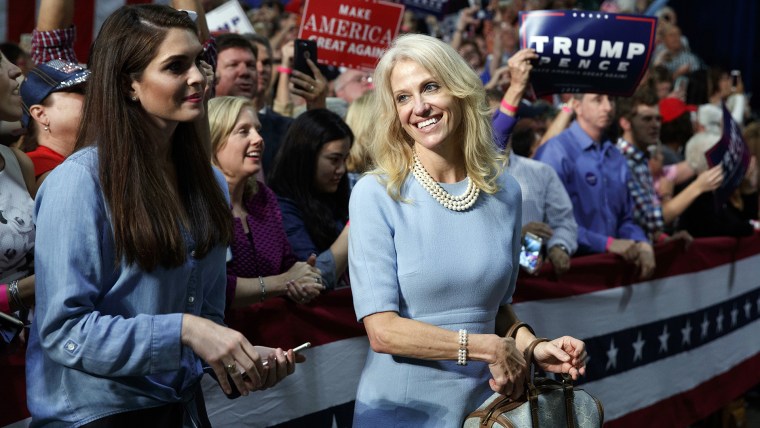The phrase "blah, blah, blah" has a surprisingly rich history in modern Republican politics. In 2017, for example, then-Homeland Security Secretary John Kelly used it in an email to dismiss concerns from Sen. Elizabeth Warren (D-Mass.).
Around the same time, then-House Speaker Paul Ryan (R-Wis.) was asked about the prospect of Democrats reclaiming the majority on Capitol Hill. "Blah blah blah blah blah is what I think about that stuff," he replied. A year earlier, confronted with questions about his obvious dishonesty surrounding his position on the war in Iraq in 2003, Donald Trump said, "Blah, blah, blah."
In October 2015: Jeb Bush, asked about his campaign's difficulties at the time, told reporters, "Blah, blah, blah, blah, That's my answer. Blah, blah, blah." In February 2014: then-House Speaker John Boehner (R-Ohio), facing questions about the substantive details in his party's tax reform package, said at a press conference, "Blah, blah, blah." In October 2008: then-Sen. John McCain, asked about nuclear safety and waste issues, said, "Well it has to be safe, environment, blah, blah, blah."
All of which brought us to yesterday, when White House Counselor Kellyanne Conway used her position to go after former Vice President Joe Biden's Democratic presidential campaign. A reporter reminded her that there are ethics laws that are supposed to prevent her from doing this.
When reporters noted the Office of Special Counsel (OSC) found she violated the Hatch Act with two interviews she gave in late 2017, Conway was dismissive."Blah, blah, blah," she said as one reporter recounted the OSC's findings."If you're trying to silence me through the Hatch Act, it's not going to work," Conway said."Let me know when the jail sentence starts," she added.
In effect, a top White House official yesterday boasted -- to reporters, on the record -- about defying a federal ethics law.
This comes on the heels of Lynne Patton, a Trump family "event planner" who now holds a senior position at the Department of Housing and Urban Development, engaging in similar political activities. Patton wrote on Facebook last week that her efforts "may be a Hatch violation. It may not be. Either way, I honestly don't care anymore."
As we discussed yesterday, the Hatch Act is a nearly century-old ethics law that prohibits nearly all federal employees from engaging in political activities. It's a law, incidentally, that Conway has already been accused of breaking.
And evidently, as of yesterday, it's also a law Conway is comfortable ignoring again.
I can appreciate why the Hatch Act may seem obscure and perhaps trivial. Those who break it are not felons, and as Conway made clear in her derisive comments, violators are not subject to prison sentences. When compared to some of the other offenses Donald Trump and his team have been accused of, it's easy to see an ethics law like this one as unimportant -- the practical equivalent of political jaywalking.
But my concern is less about the Hatch Act itself and more about the conditions that allow federal officials to publicly declare their indifference to legal limits.
Donald Trump has already indicated that, in some cases, he believes following the law is optional. The more that sentiment spreads to others in his administration, the larger the scope of the problem.
